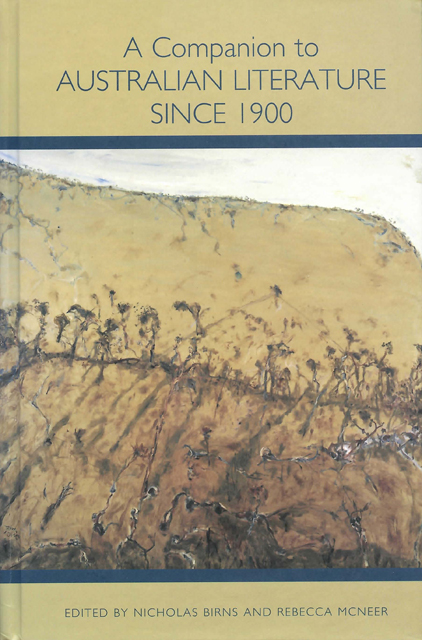Book contents
- Frontmatter
- Dedication
- Contents
- Chronology of Main Events in Australian History, 1901–2005
- Acknowledgments
- Note on the Cover Illustration and Artist
- Introduction
- Part 1 Identities
- Part 2 Writing Across Time
- Part 3 International Reputations
- Part 4 Writers and Regions
- Part 5 Beyond the Canon
- Notes on the Contributors
- Index
24 - Trans-Tasman Literary Expatriates
Published online by Cambridge University Press: 10 March 2023
- Frontmatter
- Dedication
- Contents
- Chronology of Main Events in Australian History, 1901–2005
- Acknowledgments
- Note on the Cover Illustration and Artist
- Introduction
- Part 1 Identities
- Part 2 Writing Across Time
- Part 3 International Reputations
- Part 4 Writers and Regions
- Part 5 Beyond the Canon
- Notes on the Contributors
- Index
Summary
Over The Course of the twentieth century, the relationship between Australia and New Zealand has ebbed and flowed like the Tasman Sea itself. The sea, like their common history, both links and separates the island nation and the larger continent. This body of water has witnessed considerable traffic in literary figures and their texts, enabling influences to be passed back and forth in spite of national boundaries. Expatriate writers have been responsible for a great deal of cultural commerce between the two countries, especially during the interwar period. This chapter will consider three key expatriates — Jean Devanny, Douglas Stewart, and Eve Langley — whose lives and writing offer insights into the fragile nature of trans-Tasman literary exchange.
A largely uneven phenomenon, with more New Zealanders moving to Australia than the other way around, trans-Tasman expatriation has widespread implications for the transmission of ideas, particularly in the literary sphere. Human traffic between Australia and New Zealand is commonplace due to geographical proximity, yet expatriation between the two countries is rarely mentioned in literary historiographies. The writings of trans- Tasman migrants have particular importance for the study of both literary cultures because the narratives of expatriates seem most likely to incorporate meditations on the problem of place and its relation to writing.
For Antipodean writers, migration to the Northern Hemisphere has seemed an essential qualification for the role of serious literary personality — one needed to “prove” oneself out in the “real” world. In Exiles At Home (1981), Drusilla Modjeska comments on the high incidence of expatriatism among Australian writers. According to Modjeska, their departures were “backed by the cultural supposition that Australia was necessarily inferior, that careers were made in the testing grounds of Europe or America” (6). This persistent sense of cultural inferiority was consistently remarked upon by literary commentators throughout the twentieth century.
Between the wars, migration to the Northern Hemisphere was already part of the mythology of being an Australian or New Zealand writer. Writers such as Henry Handel Richardson and Katherine Mansfield set the scene for later flights from native soil.
- Type
- Chapter
- Information
- A Companion to Australian Literature since 1900 , pp. 359 - 372Publisher: Boydell & BrewerPrint publication year: 2010



